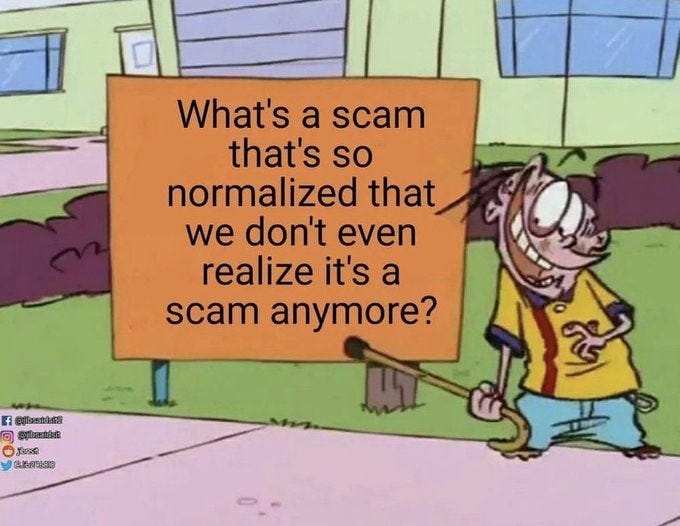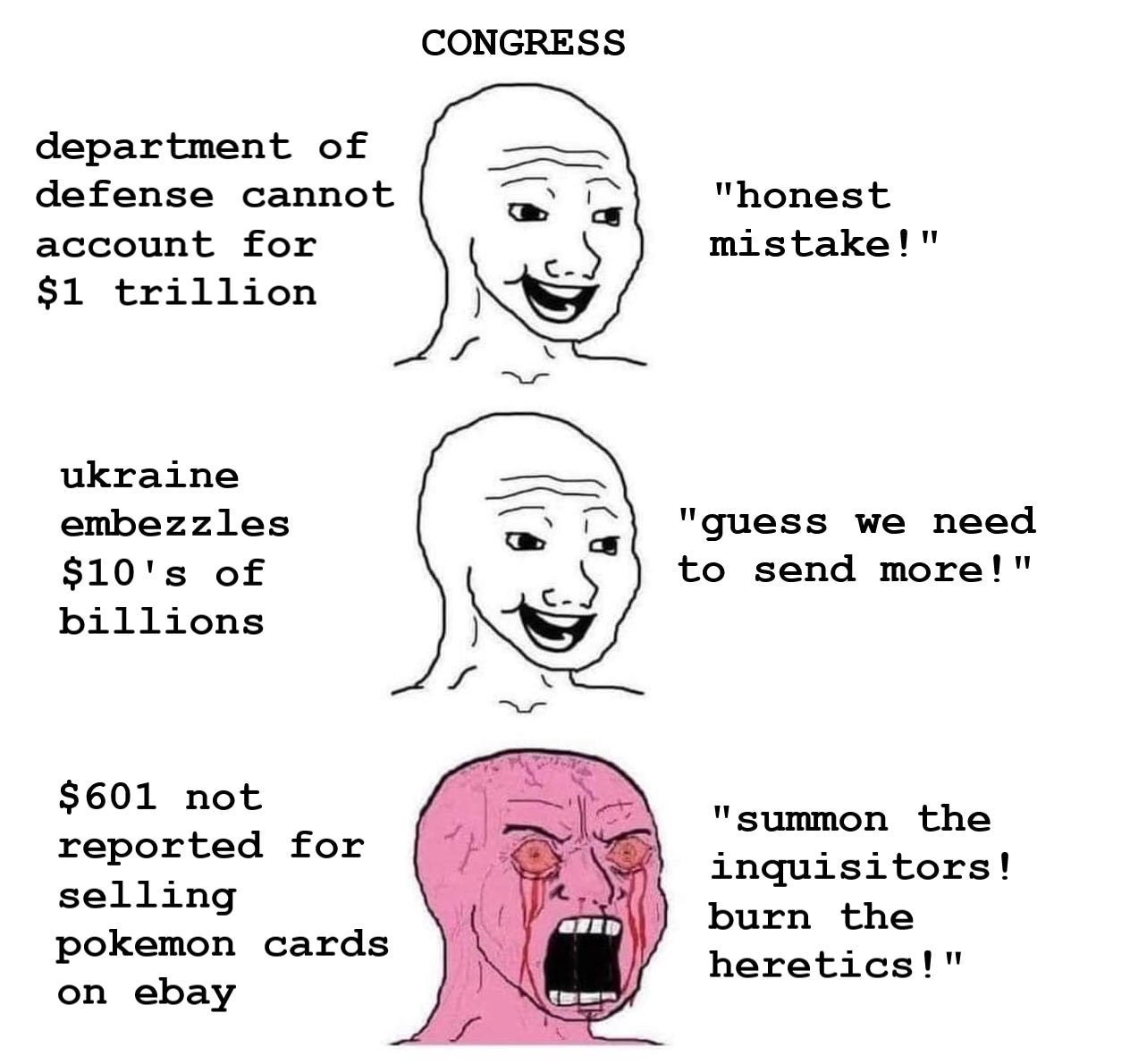what's being withheld on withholding taxes
if you run a scam long enough, it becomes invisible
here’s a fun question (and one that should make the comments section one for the ages):
i’ll go first:
withholding state and federal taxes from paychecks.
this is actually an outlandish imposition if you really step back and look at it. it constitutes an all-but-involuntary extended duration interest free loan to the government. it was put in place to ensure compliance and make sure that everyone’s taxes are collected before we the people ever touch the money. the federales are literally garnishing your wages.
this is a cost to you (missed interest/investment income/flexibility) and a benefit to them from a pure economics standpoint, but it’s also a massive power play as it essentially eliminates most of the potential for any sort of tax revolt whereby people would refuse to pay a state they felt unjust. it’s basically impossible. your employer is paying the state for you and given what would happen to them if they stopped (loss of business permits/licenses, frozen accounts, seizures etc even in bankruptcy) there is very little they could do to help you even if they wanted to.
and, of course, even if you could withhold payment, if you had money in any bank anywhere the feds would just seize it.
stocks, bonds: ditto.
if you owned any real estate anywhere, they could grab it.
at points in the past, they have come for the gold and even if you held it in physical form or kept assets some kind of crypto currency, they could barge into your home and demand it and/or your passwords and bar you from all the “off ramps” that let you turn BTC/ETH/whatever into dollars without committing a crime for which you could be incarcerated.
this is why they are so intense about regulating crypto exchanges and imposing KYC (know your customer) laws and tracking venmo and paypal. this is not about criminals or terrorists. that’s a puppetshow pretext and the dangerous parts of that gang know how to get around it anyway. this is about making sure everyone has to pay taxes on everything and the feds can watch and track all you do, a standard to which they certainly seem disinclined to hold themselves…
we are all so used to inhabiting a financial system that amounts to literal serfdom where our wealth is subject to state taking at any time and in many cases with near zero recourse that it has become ingrained as “normal” and the idea that it could be any other way seems alien.
you presume you own your home, but stop paying taxes on it (over which you have no real say) and see who winds up in possession. you think it’s “your money” but it can be frozen or taken at the push of a button. even in bankruptcy, income and payroll tax debt can be devilishly difficult to get rid of.
“when i ring the bell, you drool.”
and the most amazing part of this whole system is the manner in which people have been trained to like it. they look forward to “tax day” and getting a “refund.” it’s a set of behavioral economics worthy of thaler (and in which, in a rare misstep, milton friedman had a hand in creating). people get excited about getting back a tiny piece of the interest free loan they made the government and it’s like “ooh, thanks uncle sam! i’m gonna go spend this on something fun!” a tiny cessation in the predatory borrowing gets viewed like christmas morning.
it also stops folks from really seeing just how much they are paying the government and experiencing the loss. behavioral econ has long shown that people dislike losing a dollar considerably more than they like getting one. it’s so acute that if you win a dollar then lose it, you’ll feel worse than if nothing had happened despite being in the exact same position.
thus, having the money hit your account then having to pay it out feels MUCH worse than never having gotten it at all. as someone who shifted to making quarterly estimated payments early on in his career, let me tell you: this is 1000% true. if everyone in the US had to cut a check out of their own account to the treasury each quarter, there would be tax revolts. it’s awful and once you realize the size of the bite, it’s seriously sobering.
this is a massively optimized system to hide the size and nature of the taking and to make the serfs tied to this inescapable and increasingly omnipresent lord grateful when they get some crumbs back from the loaves that were taken.
and it’s so big and so pervasive that few can even see it anymore.
so now, let’s go back to the original question:
“what’s a scam so normalized that we don’t even realize it’s a scam anymore?”
you know what to do:









The best government is just like the best (accurate!) medicine: minimum effective dose.
I recall reading somewhere about the size of the underground economy being directly proportional to the tax rate. I see a return to barter in a completely disintermediated economy on the horizon.
It’s probably a good idea to have a cache of stuff you can trade in various amounts. “Durable consumables” come to mind.